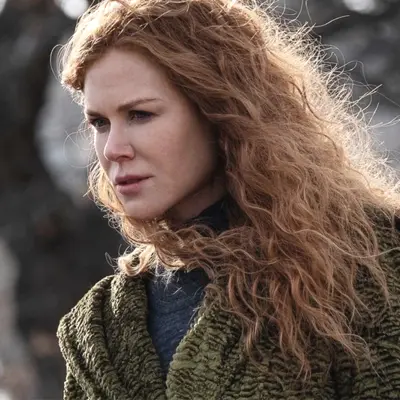The Undoing's plot was thin, full of holes and brimming with inconsistencies -- that's why it was so fun
-

"Each episode ended on a cliffhanger so brutal that I couldn’t stop myself from binging nearly the entire series in one sitting, even though my stress levels rose with every hour that passed," says Megan Reynolds. "Watching the show was an exercise in anxiety, sure, but it was a pleasant reprieve from the other, more pressing anxiety that permeates my everyday—escapist in the same way that horror movies are for those who can stomach them. To have a place to put away my own anxieties and let them be replaced by fiction for even a few hours is a real treat this year. Even though The Undoing’s finale was arguably the most implausible hour of television I’ve seen in some time, I was in thrall to all of its bullshit, willing and happy to suspend disbelief so much so that I bought into every 'twist' and turn of the finale, which many people found disappointing, but for me, a simpleton, I was pleased as punch. Unlike Big Little Lies, which ended up with a second season even though there was absolutely no need for it, the closing scene of The Undoing was the cherry atop an overladen sundae simply dripping with melodrama. There’s no real way that this show could get a second season, as it is already a perfectly contained unit— a tight six episodes that led to a relatively ridiculous denouement. To expect anything other than that resolution from this kind of programming is a fool’s errand. Watching The Undoing was like parachuting into someone else’s own anxiety for a minute and sitting with it, soothed by the fact that all the feelings I was feeling were neither real nor consequential."
ALSO:
- David E. Kelley took all the wrong cues from Big Little Lies in making The Undoing: "Aside from the kaleidoscopic nuance of Kidman’s extensions, so much of what unites David E. Kelley’s two series about the worlds in which wealthy, mostly white women wield power and exert influence are questions of upper-crust aesthetics: the price tags of their vacation homes; their professions, and their husbands’; the elaborateness of their children’s birthday parties," says Roxana Hadadi. "But while Kelley’s adaptation of Liane Moriarty’s Big Little Lies maintained the socioeconomic largesse already written into the source material, his attempt to shove Jean Hanff Korelitz’s novel You Should Have Known into a Big Little Lies frame demonstrates the limitations — and diminishing returns — of copying one’s own success."
- A psychotherapist weighs on whether Hugh Grant's Dr. Jonathan Fraser is a psychopath or sociopath
TOPICS: The Undoing, HBO, Big Little Lies, David E. Kelley
More The Undoing on Primetimer:- With Netflix's Anatomy of a Scandal, David E. Kelley is essentially repeating his work on Big Little Lies and The Undoing
- Nicole Kidman is known for interesting film roles, so why is her TV work so disappointing?
- 2021 Emmys Preview: Handicapping the Limited Series Categories
- Who's Set to Win the TV Awards at the 78th Golden Globes?
